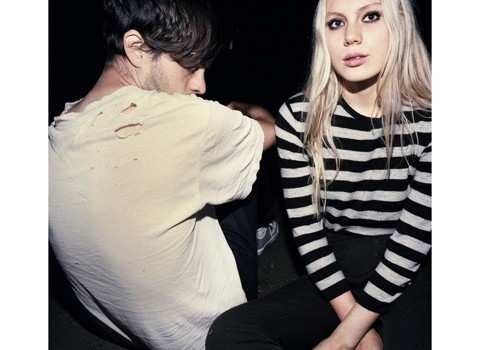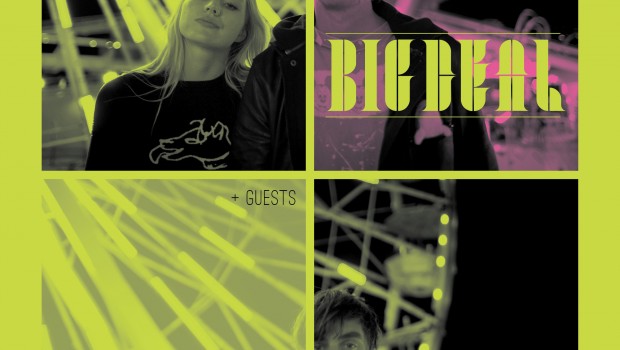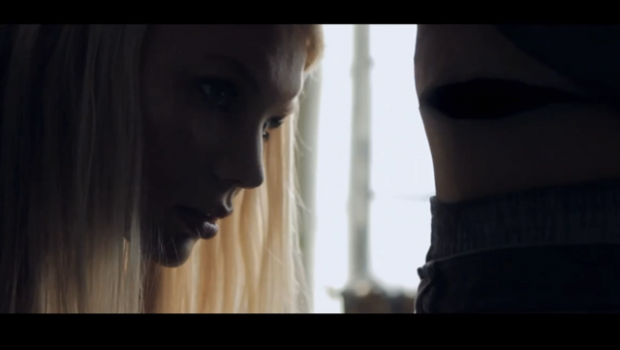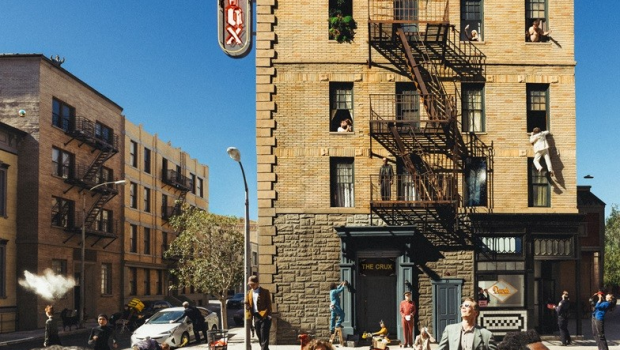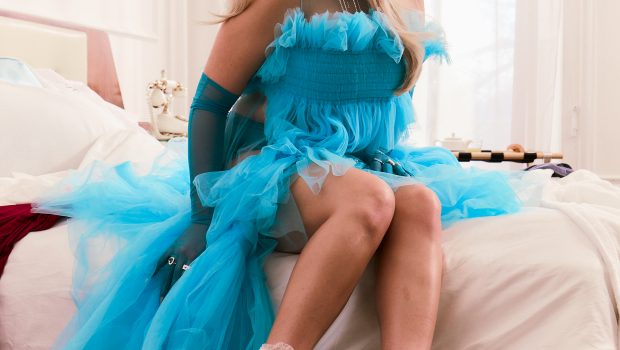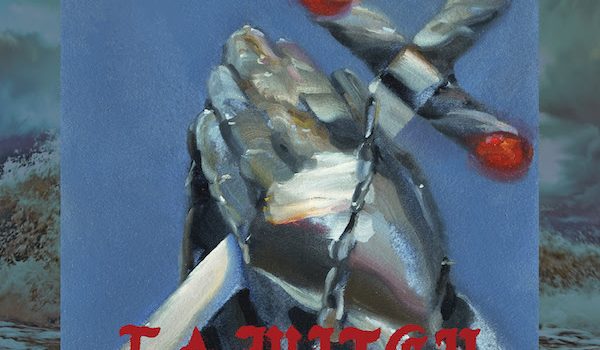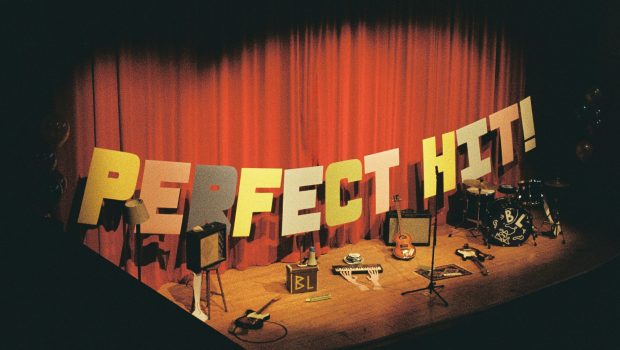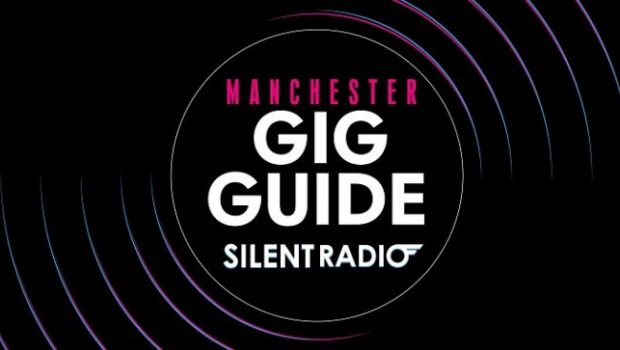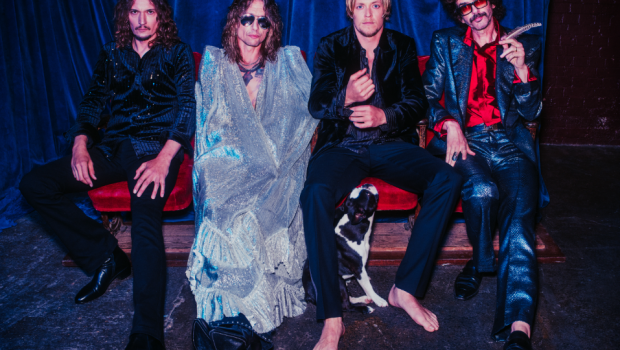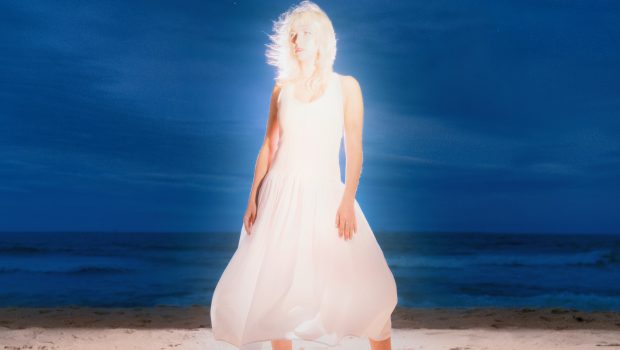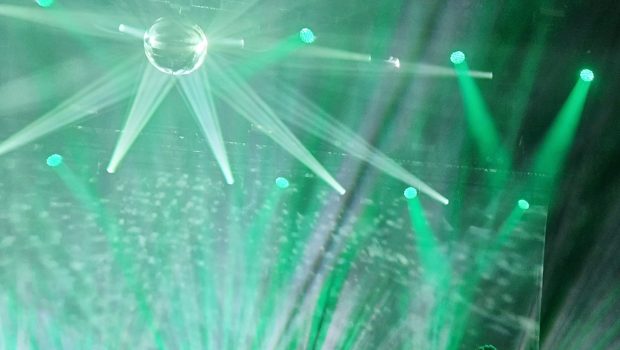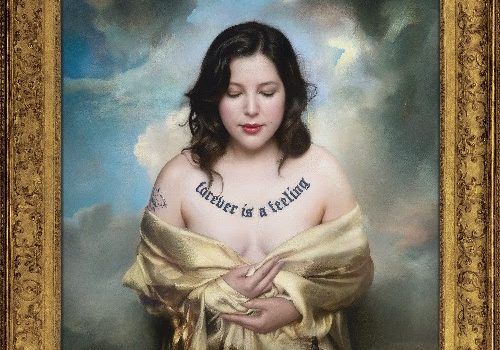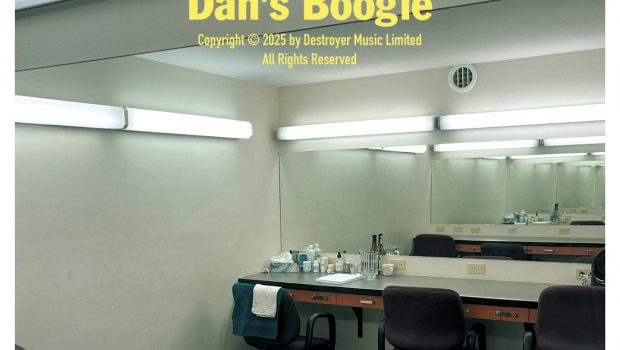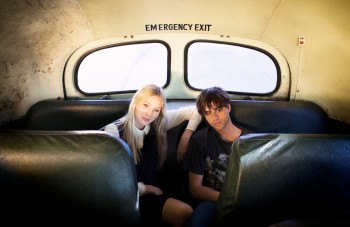 Ahead of the release of new single ‘Swapping Spit’ and their second UK headline tour, one half of two-piece Big Deal, Kacey Underwood spoke to us about shedding their ‘intimate’ label in favour of a more bullish sound, supported by two additional live band members, and how self-mutilation on-stage might be the only way to get people’s full attention.
Ahead of the release of new single ‘Swapping Spit’ and their second UK headline tour, one half of two-piece Big Deal, Kacey Underwood spoke to us about shedding their ‘intimate’ label in favour of a more bullish sound, supported by two additional live band members, and how self-mutilation on-stage might be the only way to get people’s full attention.
Can you tell us a bit about the next single [Swapping Spit] and the reason behind the song’s title?
Well it’s the third single from the record and it’s one of the songs I thought would be best to release, although it was a little lower on the list for our label but I’m glad it is being released as it’s a pretty good representation of the band. It’s called ‘Swapping Spit’ and I think it just happened because generally we tend to work with the music first and then we work [the title and lyrics] around it. That one was for us kind of described teenage desperation which is a term I hadn’t heard for a long time and it’s gross and mostly funny.
You’ve been supporting Local Natives recently – How much are you looking forward to going out on your own and playing to people you know are in-tune with the music?
Yeah we are looking forward to doing that. When we did the first tour, the record had just come out, so it’s nicer when you’ve had time to bond with the music and become more emotionally invested in it and we’re really hoping that it’s like that, and hopefully, we can have a bit more interaction with the crowd.
Are there different features to enjoy in both supporting and headlining?
Headlining is kind of gratifying because you do feel like people are there, only if its 10 people, they’re here to see you. Playing to other people’s crowds it’s harder but also really worthwhile because if you manage to make an impression, then you’ve made a bunch of new friends but sometimes it is really hard, but if you’re playing with a band who shares something in common with your music it’s easier – but both are really important to do.
Talking about support slots, I believe you’re supporting Depeche Mode soon. How much are you looking forward to that?
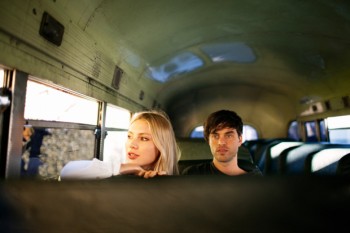 Absolutely. It’s funny because I had older brothers who turned me on to Depeche Mode and I remember going to a friend’s house and he had a keyboard and guitar and he was really into the album Black Celebration and I just remembered learning and playing those songs and it just seemed so magical. They were some of the first songs I ever learned and I remained a fan since. I was just looking forward to see them play, but to be invited is great, and to hear someone you really like trusts you and wants you to play along with them is really nice. It will be really challenging, and hard in some ways as many people will just want to see Depeche Mode, but we’re optimistic about it because we have faith in music and people who are open-minded, no matter how big a fan they are of someone.
Absolutely. It’s funny because I had older brothers who turned me on to Depeche Mode and I remember going to a friend’s house and he had a keyboard and guitar and he was really into the album Black Celebration and I just remembered learning and playing those songs and it just seemed so magical. They were some of the first songs I ever learned and I remained a fan since. I was just looking forward to see them play, but to be invited is great, and to hear someone you really like trusts you and wants you to play along with them is really nice. It will be really challenging, and hard in some ways as many people will just want to see Depeche Mode, but we’re optimistic about it because we have faith in music and people who are open-minded, no matter how big a fan they are of someone.
So your second album is called June Gloom which are two words you wouldn’t normally associate. Can you tell us the reason behind that?
You’ve hit it on the head there; I like putting things together that don’t really go together – we’re always kind of doing that with both our music and the lyrical ideas. With the album name, I guess we just tried to find a few words that don’t colour it too much, so you can understand it in your own way. It was about time and these two worlds we live in and the ups and downs of the last two or three years since we formed the band. In one way it’s looking back and saying “That was really fun and really hard” and looking forward and saying “Yeah we want our music to sound like that” and we’ve now changed the band to make that future more real.
Because of the first album’s intimate, slow sound, did you find it hard to tour?
Yeah it was a hard record to tour and get out there. You wanna play live as a band and get out there and do it, but when it’s just two people on two guitars sometimes supporting bands like that, it’s really hard. When you support, you’re sort of competing for people’s attention and when you just have two guitars it doesn’t get to people. Now, we have evened the playing fields and made it a little easier for ourselves, with adding two more members and making it louder.
I believe Alice [other half of Big Deal] was at one point very against the inclusion of other people, so what made her change her mind?
It’s funny because we tend to change turns in swapping strong stances and opinions. I was like “We need to get a bigger sound” and she was like “No way!” but now she wants to get more people involved and I’m like “No, I think we should keep it this way for now.” It just makes more sense and I guess we should have done it earlier.
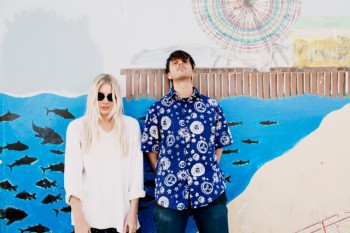 I know you’re like me in that you hate talking at gigs; In some ways is this louder sound a reaction to that?
I know you’re like me in that you hate talking at gigs; In some ways is this louder sound a reaction to that?
Yeah I guess so, the talking thing I can understand it to a certain degree, we’re not sort of hard line dictators when it comes to things like that, but it was so noticeable when we were just two guitars. Now when we are playing live we can’t hear people talking. In the past people talk and others can’t hear so I’ve always felt bad about that and that was one of the things that made it hard. Now, it’s a lot easier for us but we’re trying to keep a few of the more quiet bits there but it’s hard to keep people in that for an hour, when it’s hushed like that, but you’ve just got to play to the people and have their attention span.
How much harder is it to keep the crowd’s attention span these days?
It’s hard, last night we went out to the crowd to watch Local Natives and the amount of people’s whose faces were glowing from looking at their phones, it was wild, just wild. I would say at any given moment about 30% of people were looking at their phones, but it definitely feels like, you know, people aren’t really anywhere 100% now. That makes us want to be better play better so hopefully people won’t do that, but maybe soon we’ll have to keep their attention by drinking pigs blood or self-mutilation on stage.
Because the two albums you have done are so different. How have you found people’s reactions to the new record and how do you fit it all in live, as there are still slower moments on the album?
That’s actually a challenge for us, because the albums are so different and we’ve definitely got new fans but we’ve also definitely had some people coming up to us giving a piece of mind. There are certain records where people really hurt by the change and then a few years later people are like actually, that record’s really great. It’s funny how people really don’t like change. It’s similar with live performances. A band like Nirvana can’t really play songs like ‘Dumb’ or ‘Something In The Way’ they – they just couldn’t do it. These are some of my favourite songs but they never played them live, I guess it’s that same thing with us to fit in the slower moments, it’s tricky to do but we try to find ways to do it.
I know you and Alice are both big fans of Arcade Fire. They constantly change their sound. Do you hope to continue changing your style and sound with each album?
It’s interesting. Arcade Fire are one of our favourite bands. They made three great records and haven’t made anything that we don’t go back and listen too, they are quite different. I remember when they released ‘The Suburbs’ and it was a strange song to release from the record, it was very sad and Neil Young sounding but nowadays, in general, the identity of a band isn’t really in a band’s heart or the way they write, it’s just a set of sounds which people associated with the band and they’re like, “You have to make that sound for the rest of your life” and it’s a horrible idea, it’s so boring. The next record will still sound different, and we’re already writing it and hopefully we’ll get it out around this time next year.
Why did you choose to record the new album on a vessel in the Thames?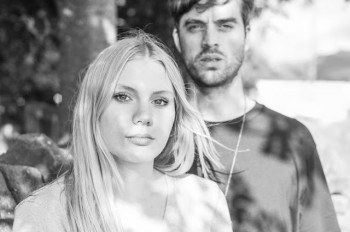
Well, we had looked at a couple of different places to record and people to work with. We wanted whoever we worked with to be attached to that place and that was the last place we tried out. I have known Rory Atwell [the Producer] as a friend for a few years and it never really occurred to me to try it, but we went down there and we knew right away and Roy was an easy guy to work with and really open minded. It was great to record out on the water on the Thames , as it felt like we weren’t really in London, it was a really nice place to go.
Completely unrelated, but there are so many puns people use when writing about your band such as “So what’s the big deal?” “Are they the next big deal?’ Do they annoy you, or are you a pun person?
At the beginning they didn’t, but lately they have annoyed me because it’s kind of amazing that people are still making the same puns. But you know what , it’s our fault for not coming up with a better band name. There are also a lot of horrible bands called Big Deal and all of them want to make the joke with this name, but it’s totally what we deserve but now it’s too late to change the band name.
With you being from California and Alice being from London, do you still have any transatlantic arguments?
More in the beginning we did, but now I definitely think that we are in a mutual appreciation of each other’s culture. Alice has come out to California for long enough to see who I am and I’ve been in London long enough to understand her as well, we are now poster kids for diplomacy and it works.
Finally, how much are you looking forward to your tour and most importantly coming to Manchester?
We’re a little nervous about it; we really love playing live but we always have these worries that people are going to be let down. We really enjoyed it last time [in Manchester] and some of our most favourite gigs have been there. We have played Soup Kitchen, we played Deaf Institute and that was a really good gig, really nice. This year we’re playing at Night & Day Cafe, and that wasn’t so nice for us the last time we played there, when I ended up opening up a can of paint downstairs and writing on the walls. This time I hope it’s going to be better.
